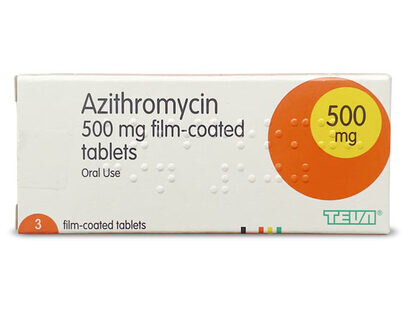- Free Delivery Over £50
- UK Registered Pharmacy
- Discreet Delivery
- Authentic & Safe Medication

Info: Before issuing a treatment, you’ll need to answer a short assessment. This will help us recommend the right treatment for you.
Chlamydia Treatment medications

Azithromycin Tablets
From £13.99
Doxycycline - Chlamydia Treatment
From £13.50
Order in the next for Wednesday delivery
Hear from our customers...
Loading reviews...
Ordering is quick and easy!

Step 1:
Choose Your TreatmentOur medical team will then recommend a treatment and issue a free prescription.

Step 2:
Free Online ConsultationStart a free 2 minutes online consultation with simple questions about your health.

Step 3:
Express DeliveryYour treatment will be sent direct from our pharmacy in discreet packaging.




